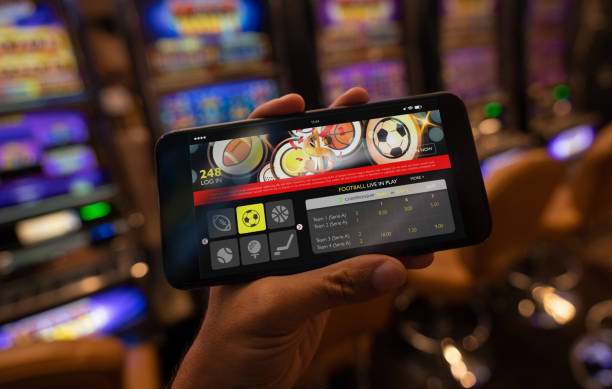
The Psychology of Gambling
The world of gambling is not merely about luck or chance; it is deeply intertwined with human psychology. To better understand this relationship, we can explore various psychological factors that drive individuals to gamble. Factors such as motivation, emotions, cognitive biases, and the social environment play significant roles in gambling behavior. Many individuals seek an understanding of their own behaviors and decisions in gambling, such as the influence of the environment and potential rewards. You can learn more about this topic at The Psychology of Gambling https://in-mostbet-casino.com/cs/.
Understanding Motivation in Gambling
Motivation is one of the critical elements that influence why people gamble. Various theories attempt to explain the reasons behind this behavior. Theories like the arousal theory suggest that people may engage in gambling to achieve a heightened state of excitement or stimulation. For some, the thrill of uncertainty is invigorating, while others may gamble to escape from daily stressors. Understanding these motivations provides insight into why gambling can be appealing, even when the odds are not in the players’ favor.
The Role of Emotions
Emotions play a substantial role in gambling behaviors. Many gamblers experience a wide range of emotions during their gaming experiences, from excitement and joy when winning to frustration and disappointment when losing. The emotional highs and lows related to gambling can create a cycle that encourages ongoing participation. Gamblers may chase the feeling of a win, leading them to continue playing even after experiencing significant losses. This emotional rollercoaster can significantly contribute to gambling addiction.
Cognitive Biases in Gambling
Cognitive biases are systematic patterns of deviation from norm or rationality in judgment, and they are particularly pertinent in the context of gambling. For example, the “gambler’s fallacy” is a common cognitive bias where individuals believe that past events can influence future outcomes in games of chance. A gambler might assume that if a particular slot machine has not paid out in a while, it is “due” for a win, leading to irrational decision-making and increased risk-taking.
Another cognitive bias is the illusion of control, where individuals believe they can influence the outcome of random events through skill or intuition. This belief often leads gamblers to take greater risks, as they feel a false sense of empowerment over their choices. By recognizing these cognitive biases, gamblers can become more aware of their decision-making processes and learn to approach gambling with a more rational mindset.
The Social Factors of Gambling

Gambling behavior is also heavily influenced by social factors. The environment in which gambling occurs, social circles, and societal norms can all contribute to an individual’s choice to gamble. Peer pressure and social acceptance can reinforce gambling behaviors, particularly among younger individuals. Social gambling environments, such as casinos or online platforms, can create a sense of community and belonging, further entrenching individuals in gambling habits.
Moreover, social media can also play a significant role in shaping gambling behaviors. Online forums and communities may glorify gambling, presenting it as an exciting and prestigious activity. This representation can influence individuals’ perceptions of gambling, normalizing behaviors that may lead to addiction.
The Psychology of Risk and Reward
The pursuit of reward and the acceptance of risk are fundamental aspects of gambling. From a psychological standpoint, individuals are often drawn to the potential for significant rewards, which can trigger feelings of euphoria. This reward system is deeply embedded in human psychology and can drive individuals to take risks they might otherwise avoid. The dopamine release associated with winning can reinforce the desire to gamble, creating a cycle of behavior that is hard to break.
Understanding the psychological mechanisms behind risk-taking can provide valuable insights into gambling behavior. Gamblers often develop a distorted perception of risk, largely influenced by their experiences and knowledge of the games they play. Recognizing these patterns is crucial for understanding why certain individuals are more susceptible to gambling addiction than others.
Addressing Gambling Addiction
Gambling addiction is a serious issue that requires attention and intervention. Many individuals who struggle with gambling addiction often do so despite understanding the psychological and financial consequences of their actions. Treatment options include psychological counseling, support groups, and self-help strategies that focus on changing maladaptive thinking patterns.
Awareness and education around the psychology of gambling can also play a significant role in prevention. By understanding the underlying motivations and psychological factors that drive gambling, individuals can make more informed choices regarding their participation in gambling activities.
Conclusion
In conclusion, the psychology of gambling is a multifaceted subject that encompasses motivations, emotions, cognitive biases, and social elements. Recognizing these factors can provide valuable insights into gambling behavior and contribute to a better understanding of gambling addiction. By engaging with this knowledge, individuals can work towards healthier gambling practices or seek help if they find themselves struggling with addiction. As our society continues to evolve in its relationship with gambling, understanding the psychology behind it will remain crucial for fostering awareness and promoting healthier behaviors.
